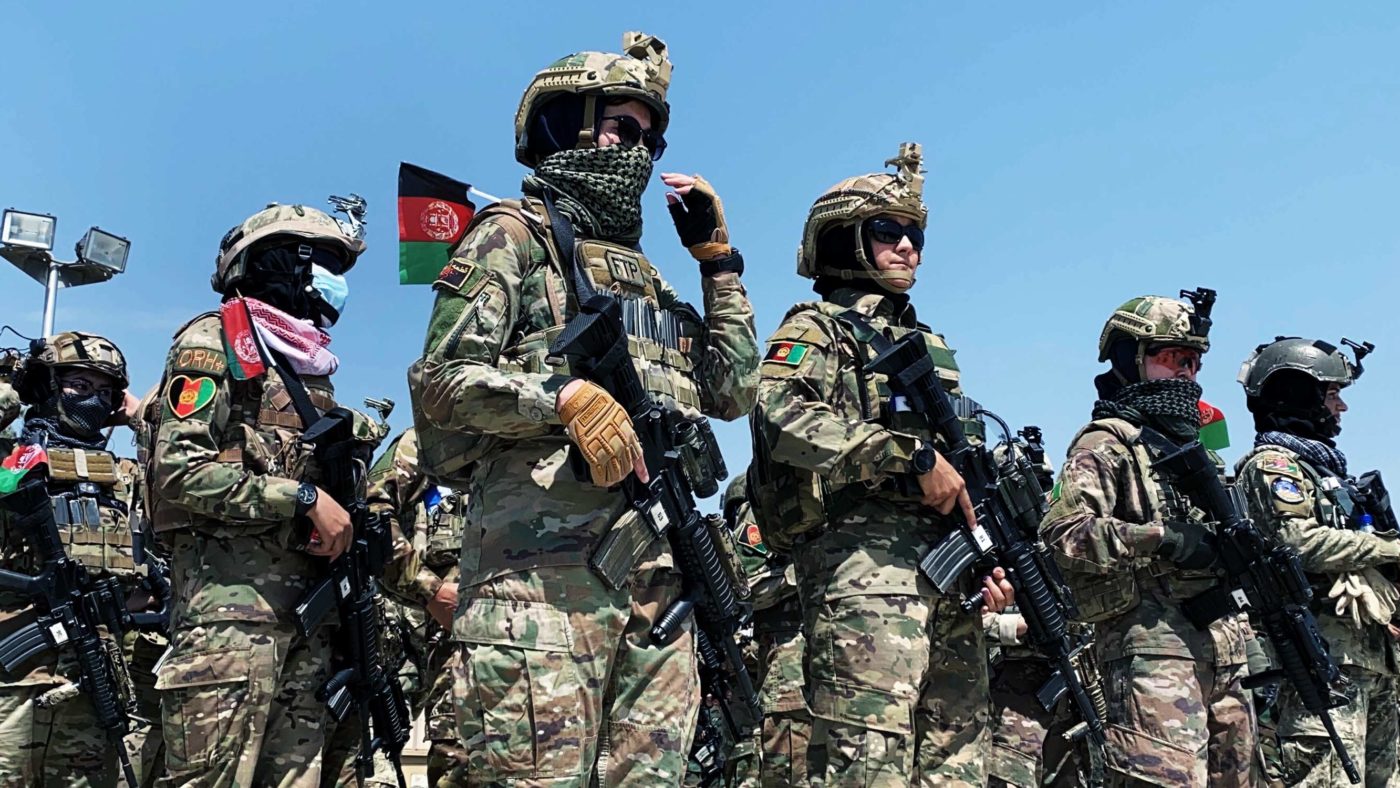There has been precious little good news to come out of the fall of Kabul. But yesterday’s reports that we might be able to find a home in the Army for elite Afghan soldiers certainly counts.
According to the Daily Telegraph, Conservative MPs are exploring the possibility of setting up a special regiment for the ‘hundreds of commandos’ that we have managed to evacuate.
There is no doubt they deserve it. The military have released details about the crucial role these men played in helping get people safely to the airport during the evacuation. And with the Taliban ruthlessly hunting down their enemies, there is surely no question of their returning home.
It also makes sense, as a matter of state policy, to avail ourselves of what by all accounts are genuinely a very good set of special forces soldiers. The question is, how to do it?
The model apparently being explored by the parliamentarians is setting up a new, discrete Army formation, perhaps on the model of the 4,000-strong Brigade of Ghurkhas. This would provide not only an opportunity to maintain some distinct Afghan regimental traditions but also an opportunity to honour previous Afghan military service to the Crown. Tom Tugendhat’s suggestion for a regiment of Afghan ‘scouts’ surely refers to the famous Corps of Guides of the British Indian Army.
However, there seems a pretty serious problem with modelling such a regiment on the Gurkhas: where will the next generation of Scouts come from? Recruitment of fresh Gurkhas is allowed by a treaty between the United Kingdom, India, and Nepal. It seems extremely unlikely the Taliban will consent to young men signing up to serve in the British Army.
Perhaps more recruits could be found in the anticipated tidal wave of refugees expected to make their tortuous way to Europe over the next year or so. But this seems an insecure and short-term, if not dangerous, foundation for a permanent regiment.
Unfortunately, this means that the state is likely to default to the low-imagination, low-effort alternative, which is simply recruiting them into existing Armed Forces units. This would be better than nothing, but would squander the opportunity to create something new.
So where the bean counters will be tempted to think smaller, Tugendhat and his allies should think bigger. Instead of establishing an exclusively Afghan formation, these commandos should form the nucleus of a proper Royal Overseas Regiment.
As I have previously argued, there are clear benefits to the United Kingdom in having a unit, perhaps modelled on the French Foreign Legion, which citizens of other countries can join. With so many people (especially young men) so desperate to get to this country, why not create a pathway to citizenship through the Armed Forces?
Earning citizenship through Crown service is already an established part of British law, after all, and we do have a recruitment problem. Why not send recruiting sergeants to the shores of France, to offer an alternative to the boats?
Restricting such recruitment to a special unit would also preserve the historic privilege of serving in the broader Armed Forces which we extend to Commonwealth citizens, who general hail from countries with long-standing historical and cultural connections to Britain.
There may never be a better moment to try and set up such a regiment. With potentially hundreds of trained Afghan commandos ready to form the core of a new body, it avoids the problem of trying to recruit a brand new formation from scratch.
There is also no reason that this unit could not adopt Afghan flourishes and regimental traditions, in honour of its first recruits and the circumstances of its formation. In fact it would give that memorial a much more secure long-term future, one that might endure even after these commandos are no longer serving.
Nor is this even necessarily the limit of how the Armed Forces could make good use of our allies who have fled Afghanistan.
After witnessing the abysmal failure of the United States to get any of its troops speaking the local language after two decades of occupation – and given the vital importance of friendly contact with the population in modern hearts-and-minds warfare – is there perhaps a case for recruiting some of the translators to build up the Army’s in-house language training capacity?
If so, that might be a natural function to locate in a ‘scout’ formation of the sort Tugendhat seems to be proposing.
There is no doubt that all these men, whom we trained and who served alongside British troops, have earned a place in the Armed Forces. But how many others would acquit themselves just as well, if given the opportunity? A greater appreciation of the value and potential of non-Commonwealth recruits would be one worthwhile thing to come out of this debacle.
Click here to subscribe to our daily briefing – the best pieces from CapX and across the web.
CapX depends on the generosity of its readers. If you value what we do, please consider making a donation.


